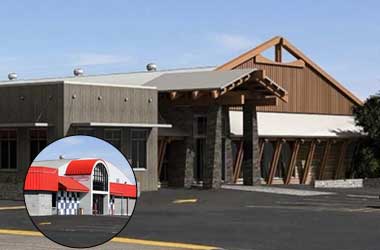 Summary:
Summary:
- Four tribes have asked US Interior Secretary Haaland to stop the project.
- The Coquille Indian Tribe would like to turn a bowling alley into a casino.
- The opposing tribes feel the casino would cause them harm.
US Interior Secretary Deb Haaland has received correspondence from four tribes, located in Oregon and California, that want to see the Coquille Indian Tribe stopped in its casino efforts. Ms. Haaland has been asked to stop the project from moving forward. The Coquille Indian Tribe has been trying for a decade to turn a bowling alley it owns into a casino in Medford.
Off-Reservation Gaming
The bowling alley owned by the tribe is located over 150 miles from the tribe’s Oregon Coast reservation. The Bureau of Indian Affairs, which is part of the Department of the Interior, would need to approve the project.
To move forward, the land owned by the tribe would need to be put in a federal trust. The Karuk Tribe, Elk Valley Rancheria, Cow Creek Band of Umpqua Tribe of Indians, and the Tolowa Dee-ni’ Nation do not agree with the casino plans.
The tribes sent a letter to Haaland, asking her to visit their reservations to learn more about their concerns. They feel the casino would cause irreparable harm and are worried that other tribes would be encouraged to open casinos off-reservation lands.
The Cow Creek Seven Features Casino is located about 70 miles from Medford and visitors may drop as much as 25% if the Coquille casino is allowed. Revenues from gaming help to pay for the medical services of the tribe.
Responding to the Opposition
Brenda Meade, the Coquille Tribal Chair, responded to the project’s opposition, stating that Haaland needs to respect tribal sovereignty. Meade stated that it is heartbreaking that other tribes continue to attack their sovereignty and want to limit their economic development rights within the reservation restoration area that was specifically defined by Congress.
The project has been rejected in the past due to jurisdictional issues and the proposed uses of the land. However, in 2021, the tribe proposed the casino again, and Haaland agreed to allow the environmental assessment and public comment.
Representatives of the opposing casinos feel that if the casino is approved, it would cause harm far beyond the Oregon board and create chaos in Indian country for quite some time. The opponents want to voice their opinions on the matter in person to Haaland so she will better understand why the casino project is not a good idea.
There is no doubt the opposing tribes will continue to fight back against this plan. Legal action may be filed if the project continues.

